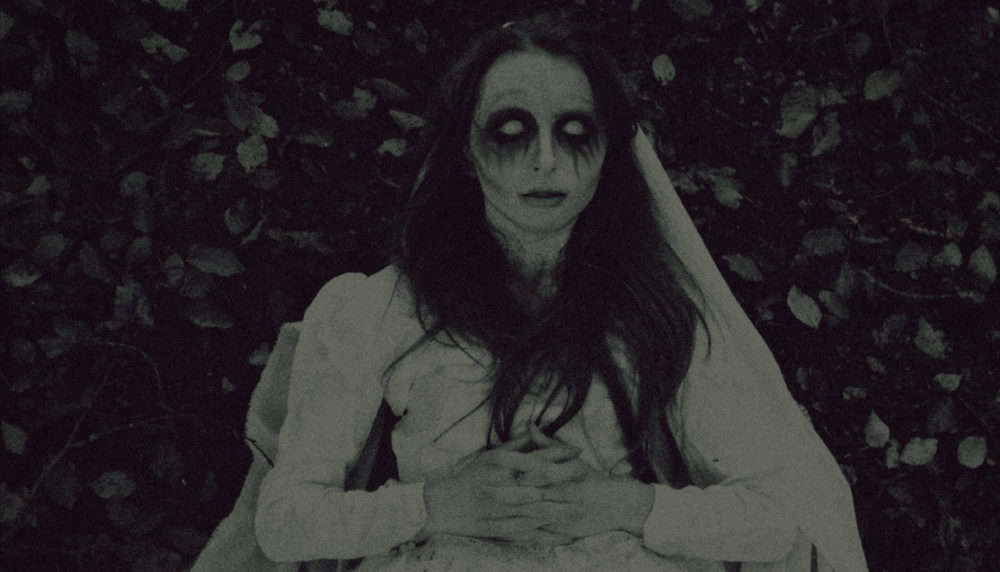You marry the dead girl. She is a scarecrow in a white dress, only the smallest bone of her pinky finger woven into the straw and wood holding her together in effigy. The rest of her has gone into the air as smoke and ashes.
You stood outside the crematory the day they burned her. You watched the smoke fade into the air. You put your hand against the brick side of the building, how cool it felt even with her burning inside, till an employee saw you.
Can I help you?
No, you said, pulled your hand away from the brick. You can’t help me.
Since she died, her family has been avoiding you, lover of a dead girl. You would lie side by side in your bed, fingers touching, shoulders.
Wo ai ni, she whispered, traced the characters on your upper thigh with her fingernail, letting the scratches linger. She never unhooked her bra, wore it to bed, black hair spread over your pillow.
I love you too, you said.
Sometimes she would let you braid her hair, kiss her bare shoulders. The scratches on your thigh thin and red. You wanted them to stay.
You’re prettier than me, she said when she looked in the mirror at the two of you. You’re so much prettier than me.
You never thought you were prettier. Loved the slick feel of her hair in your fingers. You would hold the ends up to your mouth, kiss your fingertips through a veil of her hair.
I’m being loved right now, she would say.
She came to her family in dreams, after her death. Keening your name, they said. Pleading for marriage.
Her family puts you in a traditional ghost bridegroom’s costume, binds your breasts, slides black gloves onto your hands. They put you beside your scarecrow bride, peel aside the dress so you can see the care they have taken with her pinky bone.
Her face is a blown-up photograph from before you met. She has braces in the photo, shorter hair than when you knew her. You clipped a lock one night when she was in your bed, tucked it into your dresser drawer, among your finest silk things, before she woke.
You have tucked that lock of hair into the breast pocket of your bridegroom’s costume. You can’t be sure it’s still there, through your binding.
She’ll be burned after, her mother says. Burned again.
Yes, you say. Yes, I know.
Her mother says: She’ll be happy now. We’ll be able to sleep.
Her mother says, straightening your collar: Try not to touch your breast pocket so much.
You marry the dead girl. All her family has come, old aunties dabbing at the corners of their eyes with dainty handkerchiefs, cousins in borrowed suits, and her three younger brothers all in a row: roundheaded boy, roundheaded boy, roundheaded boy. She said they had always taken turns kicking her shins under the dining table. Their feet twitch now, shoes polished and shining.
After you have married the dead girl, her family comes up to you one by one.
They say: Congratulations, clap you on the shoulder, shake your hand, send you off in a taxi back to your apartment. You still have some of her things there, toothbrush, worn-soled shoes, tattered copy of The Crimson Fairy Book. You wish her family had offered you the finger bone or the blown-up photograph, at least.
You say: We are married now. You are my wife.
You say it to the air, where she has gone. Pull the lock of hair out of your breast pocket, press it to your mouth.
You say: You are being loved right now.
